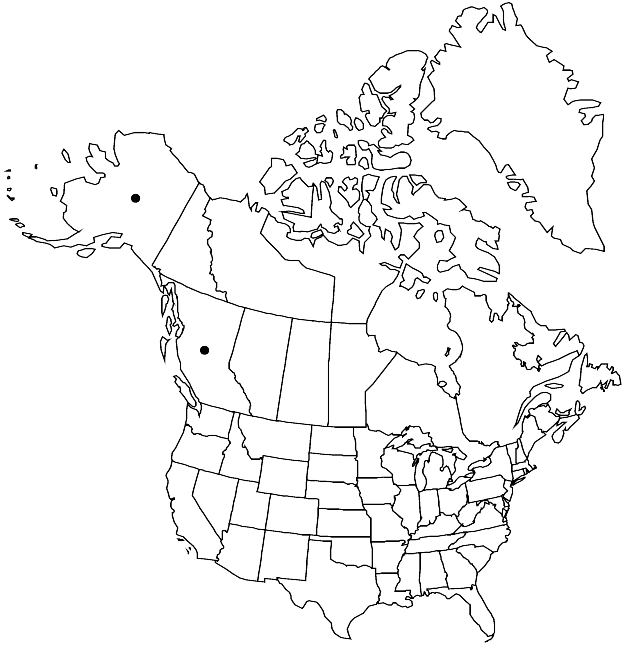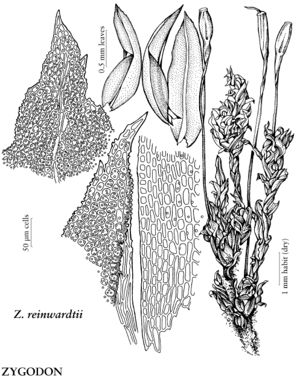Difference between revisions of "Zygodon reinwardtii"
in P. Bruch and W. P. Schimper, Bryol. Europ. 3: 41. 1838.
FNA>Volume Importer |
FNA>Volume Importer |
Revision as of 22:00, 16 December 2019
Plants to 2 cm. Stem leaves irregularly twisted or curved, loosely spiraled around stem and ± undulate when dry, spreading to wide-spreading, sometimes subsquarrose, recurved when moist, oblong-lanceolate to broadly lanceolate, 0.7–2 mm; margins entire to ± sharply serrulate near apex; apex sharply acute, apiculus usually present; costa ending near apex, abaxial surface smooth or covered by cells only at apex; basal laminal cells short-rectangular; distal cells 5–11 µm, papillae 3–6 per cell, walls somewhat thick. Specialized asexual reproduction by clavate to elliptic gemmae, longitudinal walls usually absent. Sexual condition synoicous or autoicous. Spores 17–22 µm.
Habitat: Tree trunks
Elevation: low elevations
Distribution

B.C., Alaska, Mexico, West Indies, Central America (Costa Rica, Guatemala, Panama), South America, Asia, Africa, Pacific Islands, Australia.
Discussion
Identifying characteristics of Zygodon reinwardtii include: leaf margins entire or ± serrulate at apex, sexual condition synoicous or autoicous, and abaxial costa smooth, not covered with papillose, quadrate cells distally. The serrulation of the distal leaf margins is highly variable, with some specimens having sharply serrulate margins (placed in var. reinwardtii), while others have entire margins or margins with one or two small teeth (placed in var. subintegrifolius). The value of taxonomically distinguishing these plants is dubious.
Selected References
None.
